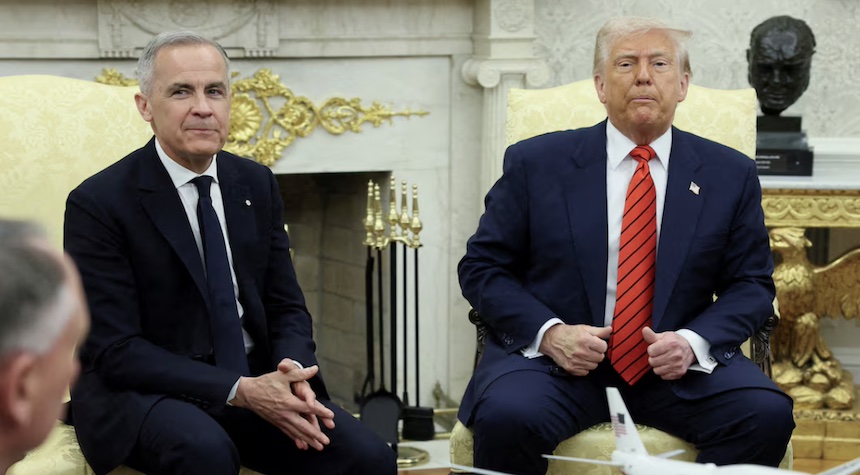The White House said Friday it welcomed Canada’s decision to remove many retaliatory tariffs on U.S. goods, describing it as a goodwill gesture aimed at restarting stalled trade talks.
“We welcome this move by Canada, which is long overdue. We look forward to continuing our discussions with Canada on the Administration’s trade and national security concerns,” a White House official said.
Canadian tariffs on U.S. autos, steel, and aluminum will remain in place for now, according to a source familiar with the matter who spoke on condition of anonymity. Canadian Prime Minister Mark Carney is scheduled to hold a press conference at noon Eastern Time on Friday.
The announcement helped lift the Canadian dollar, which rose 0.5% to C$1.3837 per U.S. dollar (72.27 U.S. cents) by 11:05 a.m. ET.

Canada and the United States have been negotiating a new economic and security framework for several months, though the two sides are not close to finalizing a deal. Carney, who won an April election promising to challenge U.S. tariffs, has since moderated his stance. In late June, his government abandoned a proposed digital services tax opposed by U.S. companies, and in July, it dropped plans for further sanctions if an agreement was not reached by August 1.
Carney spoke with President Donald Trump on Thursday, marking their first conversation since June. His office described the discussion as productive. No comment was provided by Carney’s office on Friday.
Also Read: Pete Hegseth Under Unprecedented Protection as Threats and Global Tensions Mount
According to the source, Canada will remove counter-tariffs on goods compliant with the U.S.-Mexico-Canada trade agreement. The move could pose a political challenge for Carney, whose Liberal Party holds a minority in the House of Commons and depends on opposition support for confidence votes. Conservative leader Pierre Poilievre recently criticized Carney for taking a softer approach with the United States.
Carney’s predecessor, Justin Trudeau, initially imposed 25% tariffs on $21 billion of U.S. goods in March in response to Trump’s tariffs. That was part of a broader C$30 billion retaliation plan targeting C$155 billion in U.S. imports, though most of the remaining C$125 billion in potential tariffs has been delayed.


